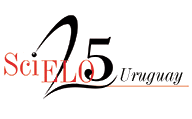The question De aeternitate mundi in Averroës and the Averroësists
DOI:
https://doi.org/10.25185/1.4Keywords:
Averroes, Averroism, Aristotle, Eternity of the world, Autonomy of philosophyAbstract
In the 13th century, in the Faculty of Arts of the University of Paris, Averroism emerged as a philosophical movement that defended the autonomy of philosophy and reason. One of the most relevant polemics of this period is the one that has to do with the origin of the world, an issue that Averroes had already dealt with and that has as its background the very conception of reality. In this article we will develop the different positions of the most relevant authors of this movement with respect to the thesis on the eternity of the world and we will question the existence of a unanimous position on it that could be considered Averroist as such.
Downloads
References
Averroes: Compendio de Metafísica, Universidades de Córdoba, Málaga y
Sevilla - Fundación El Monte, Sevilla, 1998.
Averroes: Fasl al-Maqâl (Tratado decisivo). En: Teología de Averroes. Traducción
de Manuel Alonso, Universidades de Córdoba, Málaga y Sevilla - Fundación
El Monte, Sevilla, 1998, pp. 149-200.
Averroes: Epítome de Física. Traducción y estudio Josep Puig, CSIC,
Madrid, 1987.
Averroes: Commentarium Magnum in Aristotelis De Anima Libros. Edición
latina de F. Stuart Crawford: The Medieval Academy of America. Cambridge
(MA), 1953.
Bazán, Bernardo C.: Radical Aristotelianism in the Faculty of Arts. En: Ludger
Honnefelder, Rega Madera, Mechthild Dreyer, Marc-Aeilko Aris (eds.):
Albertus Magnus und die Anfänge der Aristoteles-Rezeption im lateinischen Mittelalter:
Von Richardus Rufus bis zu Franciscus de Mayronis. Albertus Magnus and the Beginnings
of the Medieval Reception of Aristotle in the Latin West: From Richardus Rufus to
Franciscus de Mayronis. Aschendorff Verlag, Münster, 2005, pp. 585–629.
Bazán, Bernardo C.: Siger de Brabant. En: Jorge J. E. Gracia, y Timothy B.
Noone, (eds.): A Companion to Philosophy in the Middle Ages. Blackwell Publishing
Ltd, Malden (MA), 2002, pp. 632-640.
Bazán, Bernardo C.: La réconciliation de la foi et de la raison était-elle possible
pour les aristotéliciens radicaux? En : Dialogue. Vol. 19, nº 2, 1980, pp. 235-254.
Brabantia, Sigerus de: Quaestiones in tertium de anima, De anima intellectiva, De
aeternitate mundi. Edición crítica de Bernardo C. Bazán, Philosophes Medievaux,
Tomo XIII, Louvaine - Paris, 1972.
Dacia, Boethius de: De mundi aeternitate. Edición de Géza Sajó, Akadémiai
Kiadó, Budapest, 1954.
Dales, Richard C: The Problem of the Rational Soul in the Thirteenth Century.
E. J. Brill, Leiden, 1995.
Dales, Richard C: Medieval Discussions of the Eternity of the World. E.J. Brill,
Leiden, 1990.
Dales, Richard C: Time and Eternity in the Thirteenth Century. En: Journal of
the History of Ideas. Vol. 49, nº 1, enero-marzo 1988, pp. 27-45.
Denifle, Henricus y Aemilio Chatelain: Chartularium Universitatis
Parisiensis. Vol. 1, Delalain, París, 1889.
Dod, Bernard G.: Aristoteles Latinus. En: Norman Kretzmann, Anthony
Kenny y Jan Pinborg (eds.): The Cambridge History of Later Medieval Philosophy.
Cambridge Histories Online - Cambridge University Press, 2008.
Fakhry, Majid: Averroes (Ibn Rushd). His Life, Works and Influence. Oneworld
Publications, Oxford, 2008.
García Marqués, Alfonso: ¿Hay tres Tomás de Aquino? En: Monserrat
Herrero, Alfredo Cruz Prados, Raquel Lázaro y Alejandro martínez
carrasco (eds.): Escribir en las almas. Estudios en honor de Rafael Alvira. Eunsa,
Pamplona, 2014, pp. 277-291.
García Marqués, Alfonso: La teoría de la creación en Averroes. En: Anuario
filosófico. Vol. 19, nº 1, Universidad de Navarra, Pamplona, 1986, pp. 37-54.
García Marqués, Alfonso: Necesidad y substancia. Averroes y su proyección en
Tomás de Aquino. Eunsa, Pamplona, 1989.
Giele, Maurice, Bernardo C. Bazán y Fernand van Steenberghen: Trois
commentaires anonymes sur le traité de l’ame d’Aristote. Philosophes Médiévaux, tomo
XI, Publications Universitaires, Louvain - Béatrice – Nauwelaerts, Paris, 1971.
Herráiz Oliva, Pilar: Fundamentación y especialización de los saberes: actualidad
filosófica del legado medieval. En: Ildefonso Murillo (ed.), Actualidad de la tradición
filosófica. Ediciones Diálogo filosófico, Colmenar Viejo (Madrid), 2010, pp.
-574.
Ivry, Alfred: Averroes. En: John Marenbon (ed.): Routledge History of
Philosophy. Vol. III: Medieval Philosophy. Routledge, Nueva York, 2004, pp. 49-64.
Marenbon, John: The Theoretical and Practical Autonomy of Philosophy as a
Discipline in the Middle Ages: Latin Philosophy, 1250-1350. En: Monika Asztalos,
John E. Murdoch e Ilkka Niinihuoto (eds.): Knowledge and the Sciences in Medieval
Philosophy. En: Acta Philosophica Fennica. Vol. 48, Helsinki, 1990, pp. 262-274.
McLaughlin, Mary: Paris Masters of the Thirteenth and Fourteenth Centuries
and Ideas of Intellectual Freedom. En: Church History. Vol. 24, nº 3, Cambridge
University Press, septiembre 1955, pp. 195-211.
Pedersen, Olaf: Universities. Studium generale and the origins of university education
in Europe. Traducción a la lengua inglesa por Richard North, Cambridge
University Press, Cambridge, 1997.
Downloads
Published
How to Cite
Issue
Section
License
Copyright (c) 2017 Pilar Herraiz Oliva

This work is licensed under a Creative Commons Attribution 4.0 International License.





























 This work is under a
This work is under a 